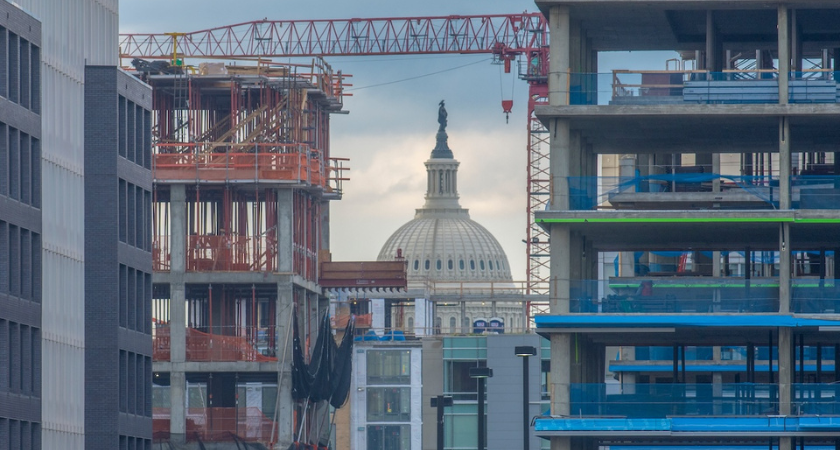
Construction companies across Washington, D.C. are sounding the alarm as immigration enforcement actions reverberate through the workforce, leading to mounting project delays and soaring labor costs.

While labor shortages have long been a challenge in the construction sector, contractors say the current disruption is unprecedented due to the heightened fear among workers — many of whom are now avoiding public spaces altogether.
A joint survey from the Associated General Contractors of America and the National Center for Construction Education and Research found that “92% of construction groups surveyed said they're having a hard time hiring workers.” Contractors say this number represents more than just a hiring issue — it’s a sign of widespread paralysis.

Crews are operating at partial strength or not showing up at all. Some workers refuse to take company-marked vehicles to job sites, instead choosing to blend in with regular traffic. Others coordinate covert transportation to avoid detection. “Many workers can't go to Home Depot or Lowe's for supplies anymore, as they're worried about ICE targeting these spots,” multiple contractors reported.
The industry is bracing for broader consequences. If the slowdown continues, analysts warn that stalled projects could constrict housing supply, push home prices higher and delay major infrastructure upgrades. “The cost of construction is already rising in the area due to tariffs and inflation — but if the local labor pool continues to dwindle, work will only get more expensive and projects will take longer,” contractors told Axios.
Developers are now lobbying for temporary protections or clearer guidance to ensure job sites aren’t emptied overnight. Some firms are investing in workforce training programs in hopes of recruiting locally, while others are bundling incentive packages simply to retain the workers they have left.
What started as an enforcement issue is rapidly becoming an economic one — and without intervention, the capital’s skyline may soon reflect the strain.
Originally reported by Diana Lonescu in Planetizen.